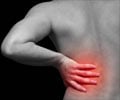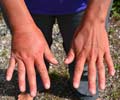- Duloxetine - (https://medlineplus.gov/druginfo/meds/a604030.html )
- Serotonin syndrome due to duloxetine - (https://pubmed.ncbi.nlm.nih.gov/21586918/#)
- Duloxetine - (https://www.ncbi.nlm.nih.gov/books/NBK549806/ )
Duloxetine Medication Information
Learn everything you need to know about Duloxetine-pronunciation, uses, dosage guidelines, indications, and when to take or avoid it.
Get up-to-date information on side effects, precautions, warnings, and proper storage to ensure safe usage.
Explore Duloxetine brand names commonly used in India and internationally, along with detailed pricing information. Consult your healthcare provider for tailored medical advice.
Generic Name : Duloxetine Pronunciation : doo lox' e teen ICD Code : Y49.2 Therapeutic Classification : PsychotherapeuticsBrand Names or Trade Names of Duloxetine
India :
International :
Cymbalta, Ariclaim, Xeristar, Yentreve, Duzela
Why is Duloxetine Prescribed? (Indications)
Duloxetine belongs to a class of drugs known as serotonin-norepinephrine reuptake inhibitors. It is prescribed for depression, generalized anxiety disorder and for managing chronic musculoskeletal pain caused by fibromyalgia and other conditions. It is used to treat diabetic peripheral neuropathy (damage to the nerves due to diabetes). Duloxetine acts by increasing the levels of both serotonin and norepinephrine neurotransmitters in the brain, which maintains the mental balance and stops the transmission of pain signals in the brain.When should Duloxetine not be taken? (Contraindications)
Duloxetine is contraindicated in patients who also take mono amino oxidase inhibitors (MAOI) drugs. It should also be avoided by those allergic to the drug, with history of severe liver and kidney failure, heart disease, high blood pressure, glaucoma or epilepsy.What is the dosage of Duloxetine?
The recommended oral dose is 40 to 60mg/day, in a single or in two divided doses.How should Duloxetine be taken?
Duloxetine comes as a delayed-release capsule to take by mouth. It is usually taken once or twice a day with or without food. The capsule should not be chewed or crushed.What are the warnings and precautions for Duloxetine?
•Duloxetine is not recommended for children and adolescents below 18 years because of the suicidal thoughts that it can produce.• Swallow the capsule as a whole and do not try to open it.
• Get up slowly from bed while taking this medication as it can cause dizziness, lightheadedness and the risk of falling down due to a fall in blood pressure in the erect posture (orthostatic hypotension).
• Avoid driving a car or operating machinery while taking this medication as it may make you feel dizzy, or may affect your judgment, thinking or coordination.
• Contact the doctor right away if any signs of suicidal thoughts or actions occur.
• Duloxetine may cause “Serotonin Syndrome” with the following symptoms: increased heart rate, tremors, sweating, seizures, nausea, vomiting, and diarrhea. If so consult your healthcare provider.
• Avoid alcohol consumption while taking duloxetine due to the increased side effects of the drug (alcohol when consumed with duloxetine can cause severe liver damage).
What are the side effects of Duloxetine?
Heart- Hot flushes, palpitations,abnormal heart rhythm,increased blood pressure,orthostatic hypotension.Central Nervous System- Drowsiness, headache, dizziness,fatigue,agitation, tremor,abnormal dreams, suicidal thoughts, anxiety, sleep disorder, yawning, lethargy,aggression, anger, restless leg syndrome, activation of mania and hypomania when used for depression and seizures.
Skin- Abnormally increased sweating, allergic reactions with rash, itching, blistering, redness and edema of the skin.
Eye and ENT- Blurred vision, sudden increase in eye pressure, vertigo
Serotonin Syndrome: Symptoms include increased heart rate, tremors, sweating, seizures, nausea, vomiting and diarrhea.
Gastrointestinal- Nausea, dry mouth, constipation, vomiting, stomach pain,decreased appetite
Liver: Liver damage, liver failure
Genitourinary- Sexual dysfunction which may include impotence and delayed ejaculation, frequent urination, urinary hesitation and abnormal uterine bleeding in female patients.
Musculoskeletal- Muscle spasms
Miscellaneous- Chills/rigors, low blood sodium levels, abnormal bleeding.
What are the other precautions for Duloxetine?
Do not discontinue or stop the sudden use of duloxetine suddenly as it will cause withdrawal symptoms like dizziness, headache, irritability, vomiting and seizures.Consult your doctor for dosage changes.
Consult your doctor if you are going to have any surgery while using duloxetine.
Check blood pressure regularly while taking duloxetine as the drug is capable of producing hypertension.
What are the Drug Interactions of Duloxetine?
Duloxetine should be avoided with:• Drugs with Monoamine oxidase inhibiting properties (MAOI) such as isocarboxazid, linezolid, and selegiline due to the increased risk of serotonin syndrome. Duloxetine should not be given within 14 days of MAOI inhibitor treatment.
• Concomitant use of serotonergenic drugs, tricyclic antidepressants, anti-anxiety drug buspirone, fentanyl, tramadol and St.John’s wort will also lead to serotonin syndrome a condition where mental changes like agitation, hallucinations, instability, tremor, rigidity and gastrointestinal disturbances are seen.
• Drugs that can increase the risk of bleeding like warfarin, ticlopidine, aspirin and nonsteroidal anti-inflammatory drugs as they would further more increase the risk of bleeding.
• Antidepressants such as amitryptline and imipramine and anti-arrhythmic drugs like flecainide since they have the same metabolic pathway.

























